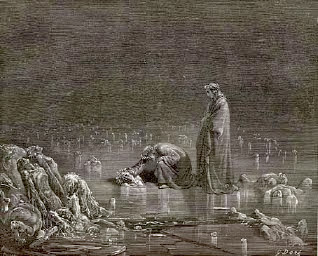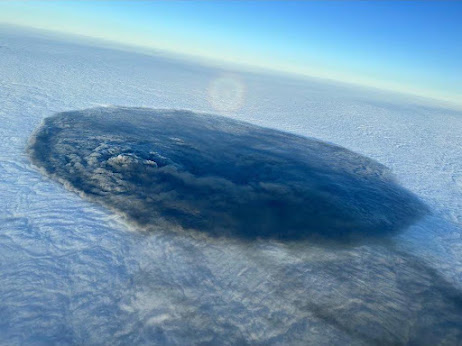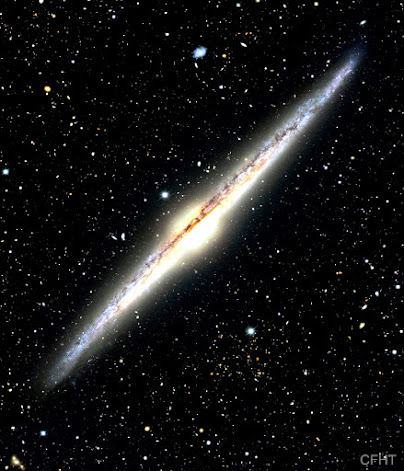"The Economic Nightmare That You
Have Been Waiting For Is Here"
By Michael Snyder
"A lot of people out there have been waiting for the next major economic crisis to arrive. If you are one of them, you don’t have to wait any longer, because it is already here. All of the numbers are telling us that we haven’t faced a downturn of this magnitude since 2008. For example, the Conference Board’s index of leading economic indicators has now fallen for 10 months in a row. According to Zero Hedge, this is the first time that has happened since the collapse of Lehman Brothers. And just like we witnessed in 2008, the housing market is crashing. In fact, the median price of a home in the San Francisco Bay Area has already fallen by a whopping 35 percent…
"The median price in the nine-county Bay Area plunged by another 8% in January from December, by 17% year-over-year, and by 35%, or by $540,000, in 10 months from the crazy peak in March 2022, from $1.54 million to $1.00 million, according to the California Association of Realtors." Home prices in the Bay Area are plummeting even faster than they did during the first housing crash. But don’t worry. Joe Biden says that everything is just fine.
Of course the reality of the matter is that everything is not fine. As bad as things are for residential real estate, the truth is that things are even worse for commercial real estate. Earlier today, I came across an article that explained that one of the biggest landlords in Los Angeles just defaulted on 755 million dollars in loans…"Brookfield Corp., parent of the largest office landlord in downtown Los Angeles, is defaulting on loans tied to two buildings rather than refinancing the debt as demand for space weakens in the center of the second-largest US city.
The two properties in default, part of a portfolio called Brookfield DTLA Fund Office Trust Investor, are the Gas Company Tower, with $465 million in loans, and the 777 Tower, with about $290 million in debt, according to a filing. The fund manager had warned in November that it may face foreclosure on properties."
Sadly, this is just the tip of the iceberg. We stand on the brink of the most epic commercial real estate crash in the entire history of the United States, and it is absolutely going to devastate the financial community.
Meanwhile, the tsunami of layoffs that we have been witnessing just continues to intensify. For instance, KPMG just announced that it will be laying off about 700 workers…"Several financial firms have slashed jobs in recent months including major Wall Street banks, asset managers and fintechs amid a turbulent macroeconomic environment that has pressured consumers and soured demand in several mainstay business units. The cuts at KPMG will affect close to 700 people, the FT report added."
And Docusign is already on their second round of layoffs…"E-signature software company DocuSign on Thursday announced plans to cut around 10% of its workforce. DocuSign had 7,461 employees in January 2022 before it announced an earlier round of layoffs last September that impacted 9% of its workforce. The company said the latest cuts will impact about 700 employees."
Even Apple is letting people go. It is being reported that “hundreds of contractors” were suddenly given the axe last week…"NYPost said Apple fired hundreds of contractors last week. These workers are employed by outside companies but work alongside Apple employees on projects. It appears Apple is reducing headcount as the macroeconomic environment remains challenging." If even an extremely wealthy company like Apple has decided that now is the time for mass layoffs, what does that say about the economic outlook for the rest of 2023?
In 2022, we witnessed a wave of layoffs in the tech industry that was unlike anything we have seen since the Great Recession. And so far this year, we are way, way ahead of last year’s pace…"The news comes after 1,045 tech companies last year fired 161,000 employees in 2022. So far this year, 380 companies have fired 108,000 workers, according to the jobs tracking website Layoffs.fyi."
Does anyone out there still want to try to argue that the economy is in “good shape”? Look, if the economy really is in “good shape”, then why is Walmart closing down more stores?…"Walmart has confirmed it is shutting down seven stores over profitability concerns after a “thorough review process.” Walmart confirmed the closure of five locations across three states to Nexstar last week. Among those was a store in Albuquerque, New Mexico, that was described as “underperforming” in a statement to Nexstar’s KRQE. Other impacted locations included a store in Milwaukee, Wisconsin, and three in the Chicago area. Nexstar’s WGN reports two of the stores in Chicago did not meet financial expectations."
Walmart can see what is coming. So can Apple. So can hundreds of other major corporations that have been “downsizing” in recent weeks. Everyone is battening down the hatches because we are entering a really bad storm.
Of course not everyone is hurting. If you are in the top 10 percent of all income earners, you may still be doing quite well. For now. But at this point the gap between the ultra-wealthy and the rest of us is larger than ever, and most of the population is just trying to find a way to survive from month to month.
Once upon a time, the U.S. had the largest and most prosperous middle class in the history of the world, but now our landscape is littered with dollar stores because such stores are some of the only places where our vast throngs of poor people can afford to shop…"A small town in eastern Kentucky has an unusual claim to fame: with a population of just 1,424, it has six dollar stores, most of them built in the past few years. Olive Hill, a quiet hamlet situated on Tygarts Creek in the Appalachian foothills, has two Family Dollar locations and four Dollar General stores in and immediately surrounding the town. All but one of them are located along Tom T. Hall Boulevard, the town’s main drag, named after Olive Hill’s most famous native, the country singer and songwriter nicknamed ‘The Storyteller’."
I have been warning that a nightmarish economic meltdown was coming for a long time. Now it is here. And it is going to get a lot worse. The good news, if you want to call it that, is that we are still only in the very early chapters of this crisis. So I would encourage you to do what you need to do, because things are only going to get rougher from here."


















